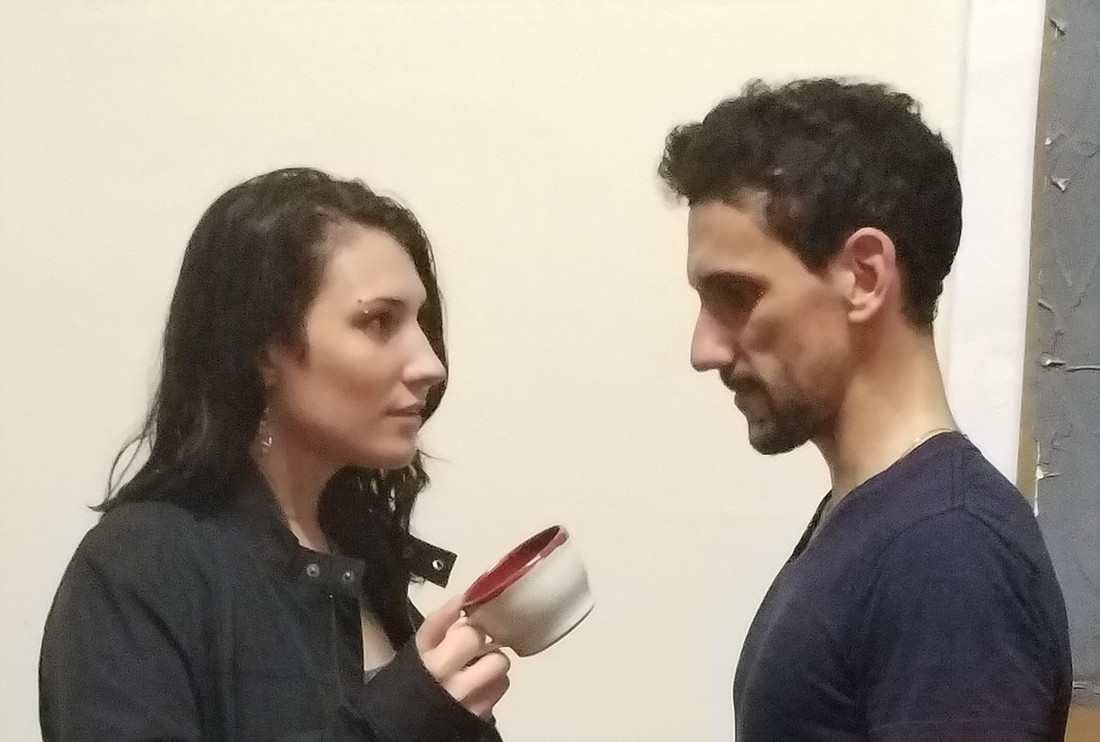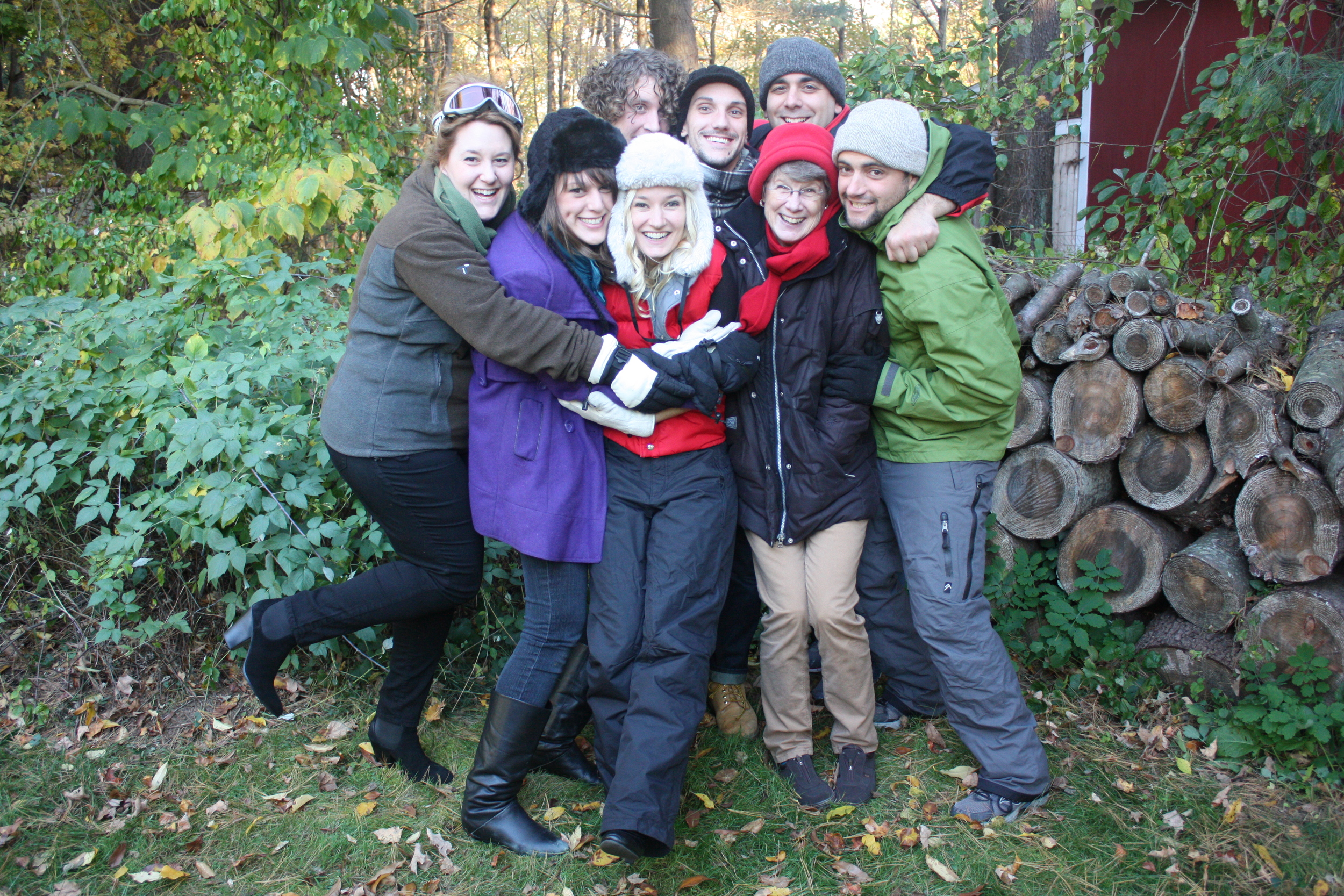Review of Retreat from Moscow, New Haven Theater Company
One of the more subtle and satisfying aspects of William Nicholson’s Retreat from Moscow, playing for two more shows tonight and tomorrow at New Haven Theater Company, directed by Margaret Mann and John Watson, is the way this play about a fraying marriage of thirty-three years is filtered through the view of the couple’s thirty-two year-old son, an only child who lives alone. At some point—usually when parents are old enough to see their children as adults—offspring see their parents as the results of decisions made long ago. When the key decision made—to marry—comes into question, then everything is up for grabs.
Because Nicholson and his characters are British, the tone of the play is apt to feel a touch mannered to American audiences. Directors Mann and Watson, with their effectively thoughtful cast, render the tonalities of the couple and son with deft moments of characterization. Kiel Stagno, as Jamie (the son), is quite good at wearing the look of patient attentiveness that his mother, Alice (Susan Kulp), has come to rely on as she sets out one grievance or another. It may be her treatment at the hands of an indifferent serviceperson at a computer store, it may be her husband’s insistence on doing the crossword puzzle when she would rather talk. Alice, who loves to intone classic British poetry, from the Metaphysicals to the Victorians, is what is generally called “high-strung,” which means that, even when she means to be ingratiating she is more likely to be grating.
Edward (George Kulp), Alice (Susan Kulp), Jamie (Kiel Stango) in New Haven Theater Company’s production of The Retreat from Moscow, directed by Margaret Mann & John Watson
Dad is Edward (George Kulp) who seems the epitome of the unassuming spouse, a kind of silent partner to his wife’s expressive sallies, some at his expense. He tends to be apologetic but also can’t see why his behavior is an issue. Alice is the type of woman who simply assumes she knows better—and so her son can’t really not believe in God, and her husband can’t really find soldiers’ journals written during the Napoleonic retreat from Moscow as fascinating as he claims. Of course there’s a God and going to church is a way to entreat his mercy, and of course Edward’s interests are really just a means to avoid doing something she’d rather he do.
The revelation that Edward at first addresses to his son sets up the play’s main device. Jamie is put in the middle, as go-between, as counselor, as put-upon support staff. That he lives a good drive away, in London, and has little interest in visiting “home” with such regularity is simply a fact. He’s a good son, or trying hard to be, and his patience is laudable. As the play goes on, we begin to understand the extent to which this event—his parents’ estrangement—marks him deeply not only because of what he has to learn about them, but also what that teaches him about himself.
Alice (Susan Kulp), Edward (George Kulp) in The Retreat from Moscow, NHTC
Not particularly witty or acerbic, much of the energy of Nicholson’s play comes from Susan Kulp’s portrayal of Alice as a woman desperately trying to make the past contain the future. Twice she moans about what will become of her when she’s old. On one level she’s the embodiment of the idea of marriage as an insurance policy, taken out in youth, that will pay benefits throughout one’s lifetime. Watching her learn to cope is lively—from changing her wardrobe, to getting a dog, called “Eddie,” that she can command, to wielding a sharp knife with devil-may-care casualness. Edward’s role, in its quieter dimensions, is a harder read. George Kulp gives to Edward’s speeches a uniform intensity of guilty reflection punctuated with breathy hope that seems to give the lie to his view that he’s found new meaning. And that makes us wonder till the end if a rapprochement might suddenly emerge.
The lighting of this spare but attractive set adds to the play’s impact. The feeling of domestic spaces as “sets” for private drama complements Jamie’s role as a stand-in for the playwright, a role that we see Stango grow into before our very eyes. We are made aware of how Jamie’s perceptions of this unexpected development in his parents’ lives becomes a means to doing them homage, in all their messy, human inadequacy.
Once again New Haven Theater Company finds a worthwhile domestic drama that suits their intimate playing space and capably naturalistic actors.
The Retreat from Moscow
By William Nicholson
Directed by Margaret Mann & John Watson
Cast: George Kulp, Susan Kulp, Kiel Stango
Stage Manager/Board Op: Stacy Lupo
Special thanks to Wendy Marans as dialect coach and Liz Saylor, costumes
New Haven Theater Company
October 31-November 9, 2019




















